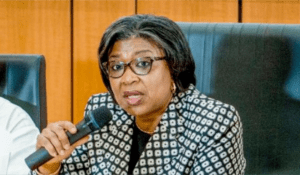
Launch of American Express cards in Nigeria met with high demand — O3 Capital
O3 Capital, a leading Nigerian fintech and the country’s first non-bank credit card issuer, has disclosed that the launch of its four American Express (‘Amex’) cards have been met with huge demand both in and out of Nigeria.
Chief Executive Officer of O3 Capital, Abimbola Pinheiro, in a statement said, “We are delighted with the amazing response to our launch of American Express cards in Nigeria.
“The success of the Green and Platinum cards, in particular, shows the market’s enthusiasm for modern financial solutions. We are proud to support both individual and corporate customers in their financial journeys.
“Our cards launch has also struck a major chord with established banks and fintechs – many of whom have approached us to partner with them. The future for O3 is exciting.
“We are also pleased to have received a positive acknowledgment from the Government of Nigeria, to our exciting developments – and which is aligned with the Financial System Strategy 2020 of the Central Bank of Nigeria (CBN), and the main thrust of a ‘cashless Nigeria’,” he stated.
Abimbola further said the acknowledgment underscores the importance of O3 Capital’s contribution to the country’s financial ecosystem.
In May 2024, O3 Capital announced an agreement with American Express to issue four new American Express credit cards: the O3 American Express® Green Card for consumers, the O3 American Express Gold Card for consumers, and the O3 American Express Platinum® Card for consumers; and the O3 American Express Gold Business Card for small- and medium-sized enterprises (SMEs).




